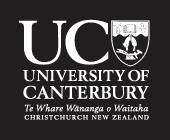About the Project
Swimming is one of the healthiest workouts and tracking one’s progress is a great motivator. However, sharing swim workout sets and viewing these on today’s wide range of available displays remains difficult. There is currently no standard way of formally describing swim training sessions which computers can understand while also enabling humans to easily read. Challenges include each swim coach having his/her own taxonomy and nomenclatures for the various exercises. While at the same time new forms of displaying swimming data, such as Augmented Reality Googles and Smart Watches are becoming available.
This project aims to develop and test a Swimming Markup Language (SwimML) as an enabling technology to standardize swim training sets. Furthermore, the student will develop a Layout Engine that transforms SwimML code into beautiful user-friendly and easily readable swim set instructions that can be printed on paper and taken to the poolside or displayed on electronic devises. The success of this project will be measured by a series of user tests.
Desired Skills
• A masters degree in computer science, human-computer interaction, interaction design or a related field of study.
• An interest in human-centered development of sport technology
• A good command of the English language (https://www.canterbury.ac.nz/enrol/international/english/)
About the HIT Lab NZ
The HIT Lab NZ is a research laboratory at the University of Canterbury. It is a dynamic, international, multidisciplinary environment, bringing together people with varying viewpoints to design new ways of supporting people in their everyday lives, be it at work, play, or school. We take a human-centred approach, starting by considering the people we are looking to support (e.g., young, old, skilled, unskilled), the tasks they need help with (e.g., repairing a device, visualizing a new house), and the environment they will be in (e.g., at work, in the home, visiting a museum), then designing solutions within these constraints using appropriate advanced technologies.
We hope to provide a welcoming space for people from a wide breadth of areas pertaining to the human condition, such as technical, design, artistic, and psychological. We’re always looking for innovative thinkers!
About the supervision team
Dr. Christoph Bartneck is an associate professor and director of postgraduate studies at the HIT Lab NZ of the University of Canterbury. He has a background in Industrial Design and Human-Computer Interaction, and his projects and studies have been published in leading journals, newspapers, and conferences. His interests lie in the fields of Human-Computer Interaction, Science and Technology Studies, and Visual Design.
Dr Carl Petersen is a senior lecturer at the College of Education, Health & Human Development. His research interests include sport sciences and swimming. He has had a particular focus on integrating new technologies to help athletes gain a competitive advantage with their fitness and conditioning activities.
How to apply
1. Send your cover letter, CV, academic transcripts and publication list to Dr. Christoph Bartneck ([Email Address Removed]) to find out more about this project.
2. Apply online at https://www.canterbury.ac.nz/enrol/doctoral/
Funding Notes
This project will be funded through a University of Canterbury Doctoral Scholarships which will cover the tuition fees and living costs. Students with a Scholarship Score above the benchmark will be guaranteed a scholarship. The score will be calculated during the application process. It is based on your GPA and other relevant information. We will help you with the application process.

 Continue with Facebook
Continue with Facebook

